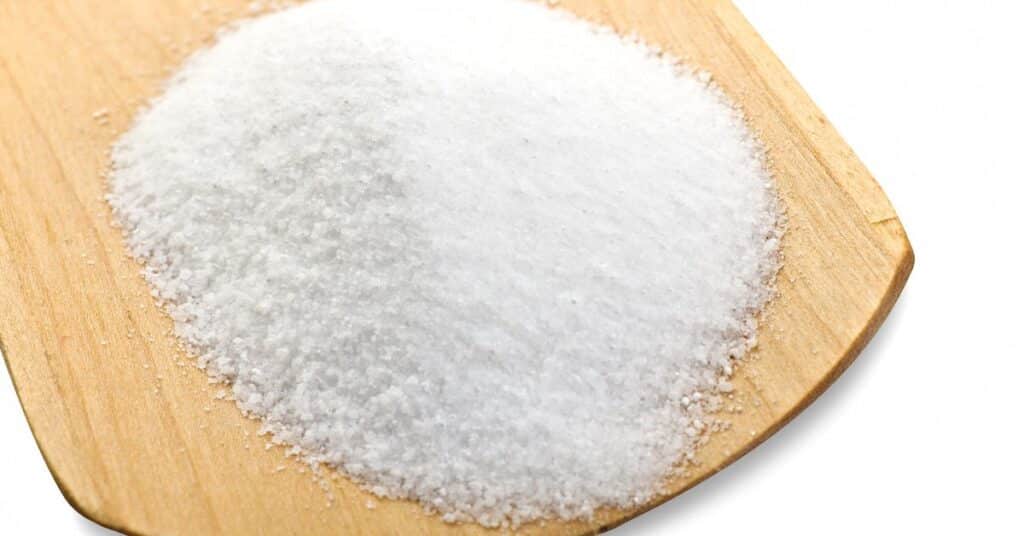
Accent seasoning is a popular flavor enhancer that can be found in kitchens worldwide. Its main ingredient is Monosodium Glutamate (MSG), which brings out the savory, umami flavors in food without overpowering them. It comes in the form of a fine, white powder that resembles table salt but offers a rich and complex flavor enhancement to recipes. Accent seasoning is particularly popular in Asian cuisines.
What Ingredients Are In Accent Seasoning?
In addition to MSG, accent seasoning also contains other ingredients that contribute to its complex flavor profile. These ingredients include:
- Thyme: This herb adds a warm and earthy flavor, often used in meat, soups, and stews.
- Bay Leaf: Aromatic and slightly bitter, bay leaves contribute to the overall depth of flavor in Accent seasoning.
- Sweet Basil: With a fresh and slightly sweet taste, sweet basil provides a subtle herbal presence in the blend.
- Garlic Powder: This powder delivers a robust and assertive garlic flavor to the seasoning.
- Onion Powder: A milder option than fresh onions, onion powder adds a savory element to Accent seasoning.
- Oregano: Offering a hint of warm, robust, and slightly minty flavor, oregano complements other herbs found in Accent seasoning.
- Black Pepper: This classic spice provides a slightly pungent heat to any dish.
- Paprika: Derived from dried and ground bell peppers, paprika lends a smoky, sweet taste to the mix.
- Cayenne Pepper: With a bit of sharp, spicy heat, cayenne pepper helps round out the flavor profile of Accent seasoning.
- Salt and Sugar: To balance the various herbs and spices, Accent seasoning also contains salt and sugar.
Common Uses of Accent Seasoning
There is a wide variety of dishes that can benefit from the addition of Accent seasoning. Here are some common uses:
- Tofu dishes: Accent seasoning can be used to give tofu a richer taste, making it more appealing and flavorful.
- Eggs: Adding a small amount of Accent seasoning to scrambled eggs or omelets can greatly enhance the depth of flavor.
- Salads: Sprinkling a little Accent seasoning on top of salads can elevate the overall taste and make it stand out.
- Noodles: Stirring Accent seasoning into your favorite noodle dishes, such as ramen or pasta, can bring out the flavors more prominently.
Important Cooking Tip
Use sparingly: Since Accent seasoning is quite potent, it’s crucial to use it in moderation and avoid adding too much. It’s always better to start with a smaller amount and adjust as needed.
How It Affects Taste: The Umami Factor
Umami is considered the fifth basic taste, alongside sweet, sour, salty, and bitter. It primarily comes from an amino acid called glutamate, which is found in protein-rich foods. When you consume foods with umami, the compounds bind with taste receptors in your mouth and gastrointestinal tract, creating that distinct flavor experience.
The unique thing about accent seasoning is that it doesn’t actually change the taste of the food; it works more like a flavor enhancer. When added to a dish, it can amplify the umami effect, resulting in a richer, more satisfying mouthfeel. This is what makes accent seasoning so popular among cooks looking to elevate their dishes.
Alternatives and Substitutes

Salt Substitutes
- Sea salt: A natural alternative, sea salt contains essential trace minerals and has a unique flavor that can enhance your meals.
- Kosher salt: With larger, coarse crystals, kosher salt is an excellent option that can enhance the taste of various dishes.
- Korean bamboo salt: A unique option processed by roasting sea salt in bamboo cylinders, Korean bamboo salt offers a distinct flavor and potential health benefits.
- Indian black salt: Also known as Kala Namak, Indian black salt has a strong sulfur aroma and a unique taste perfect for Indian dishes.
- Table salt: The most common salt variety, table salt can be used in a pinch as a straightforward substitute for Accent seasoning.
- Seasoning salt: A blend of table salt and additional spices, seasoning salt adds extra flavor to dishes and can be customized based on personal preference.
Seasoning Options
- Bouillon: Ready-made cubes or powders that can be dissolved in water to create a flavorful broth, bouillon is a convenient option to add depth to your cooking.
- Soy sauce: A popular liquid seasoning with a rich, savory taste, soy sauce can be used to enhance the flavor of a wide variety of dishes.
- Fish sauce: Made from fermented fish, fish sauce adds a deep umami taste, ideal for many Asian dishes.
- Liquid Amino: A liquid protein concentrate made from soybeans, it is a gluten-free alternative to soy sauce.

